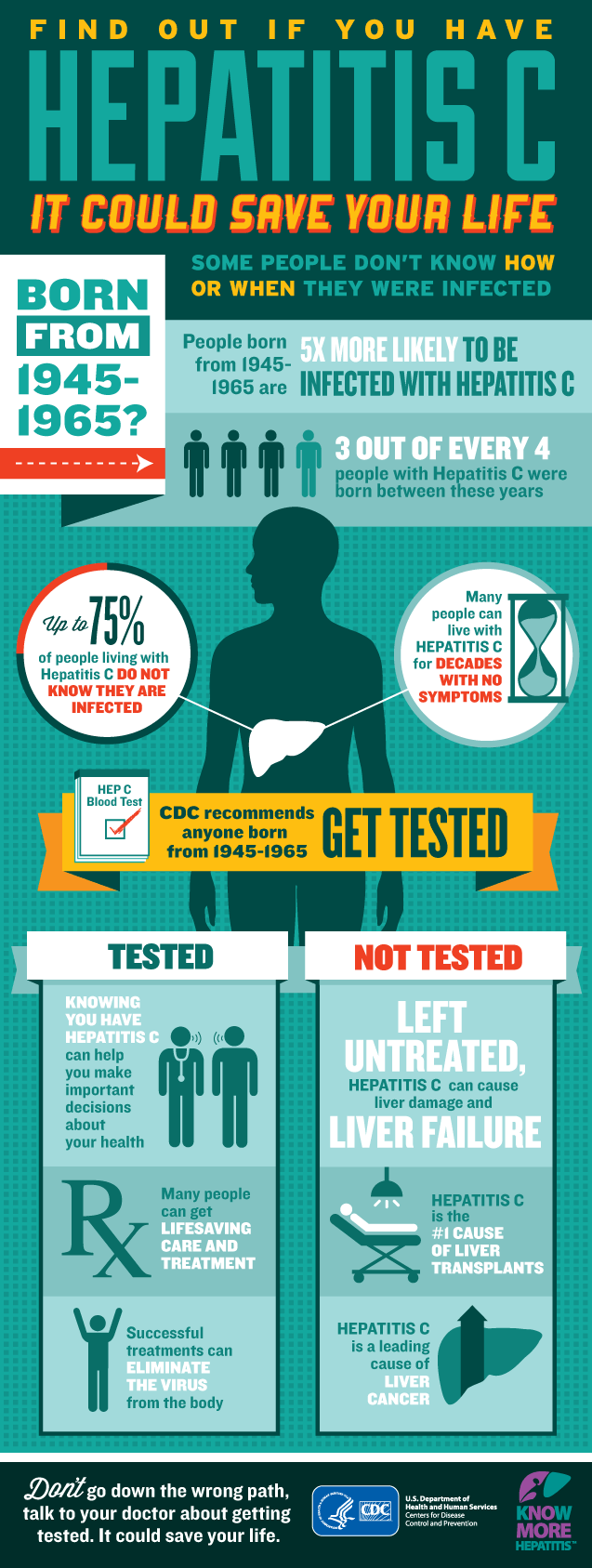Hepatitis C is a serious liver disease caused by a viral infection. It can cause serious, lifelong health problems including liver damage, cirrhosis, liver cancer and even death. Hepatitis C is a leading cause of liver cancer and the leading cause of liver transplants.
Baby Boomers Are at High Risk
If you were born between 1945 and 1965, you are five times more likely to be infected with Hepatitis C. You may not even realize you are infected. More than 75% of adults with Hepatitis C are baby boomers, and as they age, there is a greater chance that they will develop serious, life-threatening liver disease from Hepatitis C.
The reason that baby boomers have the highest rates of Hepatitis C is not completely understood. Most boomers are believed to have become infected in the 1970s and 1980s when rates of Hepatitis C were highest. Some may have been infected from contaminated blood and blood products before widespread screening of the blood supply began in 1992. Still, for many the cause of infection is unknown.
Testing, early diagnosis and treatment can help prevent liver damage, cirrhosis, and even liver cancer. The CDC recommends that all persons born in these years be tested for Hepatitis C. Check with your doctor or a healthcare provider about testing.
Who Else Should Be Tested for Hepatitis C?
Anyone Living with HIV
- If you are living with HIV and also have Hepatitis C, you are at increased risk for serious, life-threatening complications. All persons living with HIV should be tested for Hepatitis C by their doctors. Hepatitis C can also complicate the management of your HIV.
- If you're African-American and living with HIV, you're at twice the risk of Hepatitis C infection.
Injection drug users
Cases of acute hepatitis C have doubled since 2010 in those who have a history of injection drug use. This group is primarily younger, white, and rural or suburban.
Testing is also recommended for these groups. Testing can lead to successful treatment, or lifestyle changes that can reduce your chance of liver damage and serious disease. Take the time to arrange testing with your doctor or a healthcare provider.
More Information
- More on Hepatitis C and Baby Boomers CDC
- About HIV and Viral Hepatitis CDC
- Resources for Health Professionals CDC


